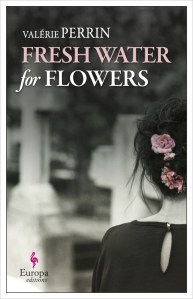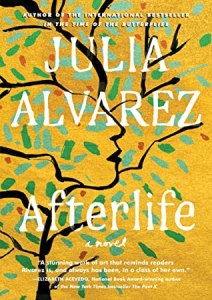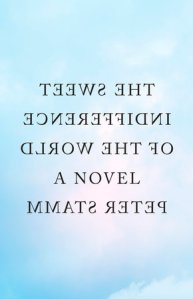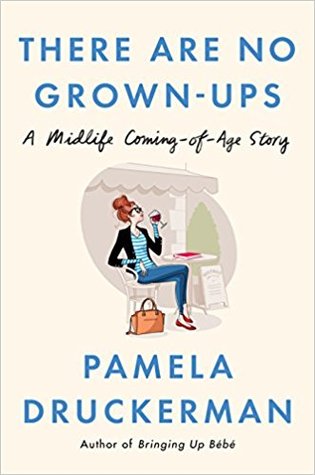
This time around, PI Sasha Jackson is investigating the murder of a porn star…
The drug addicted girl was a worthless nobody, so the cops aren’t putting much effort into finding out who killed her. Sasha takes on the case, and learns that the dirty picture business is way dirtier than it seems. She discovers surprising motives and even more surprising secrets, and just when she thinks she’s solved the case, another dead body turns up.
Meanwhile, Sasha’s private life is a shambles. Her brother is pissing her off, Sasha’s love-life is on the rocks, and her BFF has her nose out of joint over Sasha’s latest revelations. And then there’s the driving instructor, the locksmith and the glazier. Let’s just say it’s a good thing that Sasha has a credit card.
Why can’t everyone just chill out long enough for Sasha to get in a good jam session, or have a good night’s sleep?
Oh, for crying out loud, pass the Scotch…
Amy Steele: Jill, it’s been two years since the last Sasha Jackson mystery and since I interviewed you. What have you been up to in Toronto?
Jill Edmondson: Two years! Where did the time go? Let’s see, well, I ignored writing for a while and just did other things. I moved homes (what a pain), I traveled a bit (Italy, Peru, Bahamas, etc….), I got a dog, and then another dog (smartest thing I’ve ever done!), and I took my time writing Frisky Business. The three previous books came out in rapid succession; there was no need to rush with the next one. There were a few stretches of three or four or five months at a time when I didn’t look at Frisky Business at all.
Amy Steele: In Frisky Business you’re tackling the Canadian adult film industry. Why did you decide to focus on that?
Jill Edmondson: The book was totally inspired by chapter two of Empire of Illusion by Chris Hedges. Hedges is one of my favourite writers, and Empire of Illusion is one of the most thought-provoking books I’ve read in a long time.
Amy Steele: What were the hardest aspects to write?
Jill Edmondson: For me, the hard part always seems to have less to do with subject matter, than with plot and clues and playing fair with the reader. Like, I could know that it’s Colonel Mustard in the Library with the Rope, but how in the name of Pete do I pen that without making it super-obvious, super early on in the book? Yikes, it’s hard to pepper in just enough clues, and to keep them just subtle enough.
Amy Steele: How did you research this novel?
Jill Edmondson: Mainly by reading the Hedges book, but anytime I noticed a newspaper or magazine article on the topic (or a related topic), I filed it away. Also, a wee bit of it was leftover from when I wrote a paper on Human Rights and the Sex Trade when I was doing my MA. The paper wasn’t on quite the same topic, but there was some overlap.
Amy Steele: What attracts Sasha to the sex cases as her brother pointed out? She’s almost an SVU PI.
Jill Edmondson: I’m not sure… I’m intrigued by themes of marginalization and I don’t like assumptions. In Frisky Business (and Dead Light District) the victims were victims even before the murder. People scoff at certain types of (or classes of) people and that makes me angry. Human beings deserve dignity. Who knows what circumstances led to a person (or character) being in such and such a place? Yet, because of their “lot in life” some people are easily dismissed. That’s bullshit. There but for the grace of Gawd…
Amy Steele: Sasha is my favorite feminist PI. Probably because she’s outspoken and she’s an advocate for women and women’s issues by taking the cases that she does. Though she never uses the word feminist. [She needs to be in a scene with a “This is What a Feminist Looks Like” t-shirt or better yet a “I Stood with Wendy” shirt.] Was this your plan all along or has this just developed from the first book?
Jill Edmondson: I think it just is. Or she just is. Sasha sees something wrong and wants to right it. She appreciates freedom, autonomy, and fairness. Those things, or actually a lack of them, are common in the sex trade, and have been a part of women’s issues in general. Sasha’s values are very much my own.

Amy Steele: How do you think Sasha’s developing as a character? Do you have any particular goals set for her? How do you plan out character development?
Jill Edmondson: Goals? Yes and no. I had certain goals back in book one that I have since shelved or changed, but of course there are other things I have held on to. There has to be a logical progression, whether that means love life, or professional life, or what have you. For instance, in Blood and Groom (book #1) she was pretty broke, so it wouldn’t have made sense for her to be thinking about buying a house in Dead Light District (book #2).
One aspect of character development that I will have to start to address is her mother. I’ve pointedly not said much about mom so far, other than mom took off when Sasha was a toddler. But there is a bit of an abandonment issue that Sasha has kept buried, and at some point her natural PI instincts and curiosity will take over. I figure this will happen by book six or seven.
Amy Steele: Sasha balks when her boyfriend of only a few months wants her to move in. Why do you think Sasha doesn’t want to commit to any guy as a partner or live-in situation but yet she always seems to have a boyfriend?
Jill Edmondson: Sasha has a joie de vivre, and part of that includes romantic interest(s), but she won’t be able to commit until she is truly satisfied with other aspects of her life.
Ah, if only she could throw Mick, Derek and Houghton in a blender…
Each guy fills a need (music, friendship, stimulating conversation, etc.) but none of them hits the mark on all three things. Also, she’s known Houghton since high school, Mick from her early twenties band days, and Derek has been a professional acquaintance for a couple years. The three guys she has been involved with were all friends before they were ever romantic interests, and they remain friends. In a way maybe these guys are part of her extended family? Her “inner circle” is pretty tight, with close, cherished, long-standing relationships all around. Even her two BFFs, Jessica and Lindsey, have been around since they were in training bras.
Amy Steele: Sasha’s quite independent yet lives with her father and brother. She never explains that to the guys she dates. And no one ever asks. She thought about moving out this time around but it seemed she’s pretty comfortable still. How does she manage feeling independent even while living with her father?
Jill Edmondson: Before I began writing the first book, I had read a few articles and had seen a few news pieces about the growing trend of adult children returning home – much to the chagrin of their (wannabe empty-nest) parents. So, writing her home life as such seemed like a realistic thing to do.
I guess the dynamic of comfort and independence partly rests on the fact that there’s just one parent around instead of two. As well, her dad goes away a fair bit on his gambling trips. And Shane is hardly ever home because of the restaurant. So, there is a home life and bonds with family but they’re not in each other faces all the time.
There one more subtle point to her home life, I think, and that is that Sasha is confident enough and secure enough to know she’s a big girl. She’s not clinging to the apron strings because she has to or needs to. If a guy ever called her on her living situation, Sasha’s response would be: “Yeah, and? What’s your point?”
Also: Toronto is a bloody expensive city to live in!
Amy Steele: We’ve talked about your fondness for traveling, particularly to South and Central America. What are the top three places you want to visit?
Jill Edmondson: Just three?!?! So hard to choose… I am dying to visit Italy again. I spent a month there (~two years ago) and loved every minute of it, especially Sicily. There’s so much more to see!
I need to travel around South America. All of it! I’m happy to go any place where I can practice Spanish. I very stupidly DIDN’T zip over to Lake Titicaca while I was in Peru. Must rectify that…
And Scandinavia has long been on my wish-list… Expensive though. Note to self: Buy lottery tickets.
Amy Steele: You’re already at work on the fifth Sasha book. What can you tell me about it?
Jill Edmondson: You know, this is a funny accident, but it seems that the Sasha books alternate between “light” and “heavy” themes or tones (wedding, prostitution, fetish, adult films). As it happens, Odd Lang Syne will be a “light” book. It’s about Gina Gervais, a former teen idol. Gina is at the peak of her comeback, and she’s back on the top of the charts. Everything should be golden, but it’s not. She’s going through a nasty divorce, she’s got a stalker, and, oh shit, someone’s just released a sex tape of her. If that’s not bad enough, her estranged husband is murdered, and guess who’s the number one suspect?
Jill Edmondson is the author of the Sasha Jackson Mysteries. Frisky Business is the latest novel featuring PI Sasha Jackson. Purchase it at Amazon: Frisky Business (A Sasha Jackson Mystery)
For more info on Jill:
website
blog
other titles on Amazon
Facebook page
Goodreads
Follow her on Twitter
 If you have to be single and you have to be bitter and you also have to be without family for the holidays, Manhattan is the only place to be. And praise Jesus for the Jews, the Chinese, and the alcoholics. If it weren’t for them, I wouldn’t be able to have sex, eat, or forget all the people I’d had sex with.
If you have to be single and you have to be bitter and you also have to be without family for the holidays, Manhattan is the only place to be. And praise Jesus for the Jews, the Chinese, and the alcoholics. If it weren’t for them, I wouldn’t be able to have sex, eat, or forget all the people I’d had sex with.




































You must be logged in to post a comment.